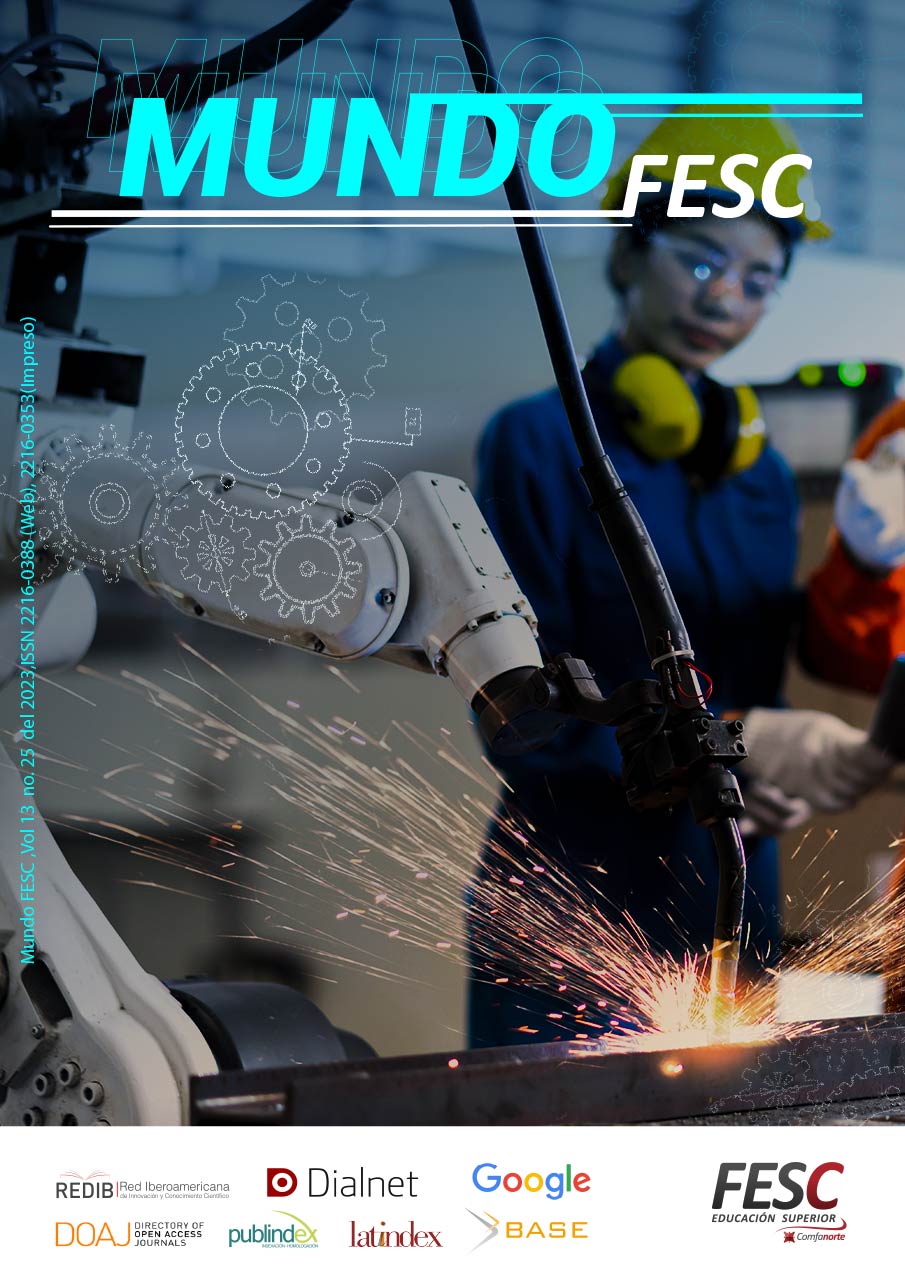Reflexión sobre la percepción de universitarios en las metodologías evaluativas desde la formación e impacto en su desarrollo integral como un futuro profesional
DOI:
https://doi.org/10.61799/2216-0388.1517Palabras clave:
Educación Superior, Formación integral, Metodología evaluativa, Prácticas pedagógicas, Profesional en formaciónResumen
La concepción y práctica de la evaluación se ha manifestado desde diferentes alocuciones, prácticas pedagógicas y estudios científicos, también se enfrenta a desafíos actuales, como las tecnologías avanzadas y a la innovación de recursos digitales del aprendizaje, los cuales exigen propuestas de actualización, que son poco conocidas, y si se conocen poco ejercidas. El artículo se presenta una reflexión sobre algunos procesos metodológicos implementados en la evaluación, dentro de la singularidad que representa formar en contextos de Educación Superior, el objetivo es analizar las planificaciones que se mueven detrás de los procesos de evaluación y cómo éstas permean en los profesionales; a su vez, si estos responden a los desafíos y requerimientos vigentes, desde el ámbito tecnológico, científico y social, en vista de ello, su importancia radica en cómo las metodologías evaluativas, sí repercuten en los currículos y forjan las prácticas integrales orientadas a los sujetos en formación. La muestra fue 295 estudiantes de las Universidad Simón Bolívar sede Cúcuta y Universidad Francisco de Paula Santander, a través de una encuesta de percepción aplicada por medio de un formulario en línea. Resaltando la importancia de analizar el sistema de evaluación en la formación de los estudiantes, debido a que, los procesos evaluativos se han convertido en una transferencia de información o procesos memorísticos.
Descargas
Referencias
J. Muñiz Fernández y E. Fonseca Pedrero, “Construcción de instrumentos de medida para la evaluación universitaria”, Revista de investigación en educación, vol. 5, no. 1, 2008
O. Keneddy Castro Zanoni, ‘Cultura de evaluación formativa: retos y perspectivas en la práctica docente universitaria", Ciencia Latina Revista Científica Multidisciplinar, vol. 5, no. 3, 2021, doi: 10.37811/cl_rcm.v5i3.562 DOI: https://doi.org/10.37811/cl_rcm.v5i3.562
N. Bonnefoy Valdés, “Evaluación de competencias en educación superior: conceptos, principios y agentes”, Revista Educación, 2021, doi: 10.15517/revedu.v45i1.43444 DOI: https://doi.org/10.15517/revedu.v45i1.43444
W. E. Moreno-Pinado and M. E. V. Tejeda, “Estrategia didáctica para desarrollar el pensamiento crítico”, REICE. Revista Iberoamericana sobre Calidad, Eficacia y Cambio en Educación, vol. 15, no. 2, pp. 53–73, 2017 DOI: https://doi.org/10.15366/reice2017.15.2.003
G. E. Morales Martínez, R. M. López Pérez, Á. García Collantes y E. O. López Ramírez, “Evaluación constructiva-cronométrica como herramienta para evaluar el aprendizaje en línea y presencial”, Revista Tecnología, Ciencia y Educación, 2020, doi: 10.51302/tce.2020.371 DOI: https://doi.org/10.51302/tce.2020.371
V. I. Morancho y J. M. Rodríguez Mantilla, “Pensamiento Crítico: conceptualización y relevancia en el seno de la educación superior”, Revista de la educación superior, vol. 49, no. 194, pp. 9–25, 2020
M. Soledad Ibarra-Sáiz and G. Rodríguez-Gómez, “Presentación: Aprendiendo a Evaluar para Aprender en la Educación Superior Learning to Assess to Learn in Higher Education”, Revista Iberoamericana de Evaluación Educativa, vol. 20, no. 1, pp. 5–8, 2020
L. Ochoa Sierra y C. Moya Pardo, “La evaluación docente universitaria: retos y posibilidades”, Folios, no. 49, pp. 41–60, Dec. 2018. doi: 10.17227/folios.49-9390 DOI: https://doi.org/10.17227/folios.49-9390
D. Boud, “Challenges in reforming higher education assessment: A perspective from afar”, RELIEVE - Revista Electronica de Investigacion y Evaluacion Educativa, vol. 26, no. 1, pp. 1–14, 2020. doi: 10.7203/relieve.26.1.17088 DOI: https://doi.org/10.7203/relieve.26.1.17088
J. Murillo-Garnica, “Repensar la evaluación formativa como parte de los procesos de aprendizaje”, RECIE. Revista Caribeña de Investigación Educativa, vol. 3, no. 1, pp. 82–94, jun. 2019. doi: 10.32541/recie.2019.v3i1.pp82-94 DOI: https://doi.org/10.32541/recie.2019.v3i1.pp82-94
Descargas
Publicado
Número
Sección
Licencia
Derechos de autor 2023 Mundo FESC

Esta obra está bajo una licencia internacional Creative Commons Atribución-NoComercial 4.0.






